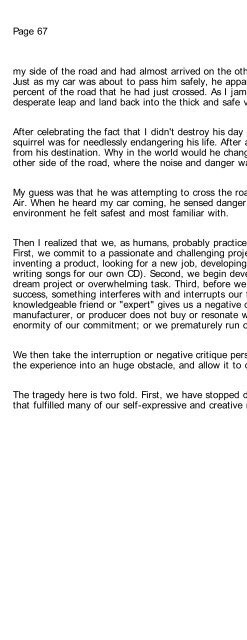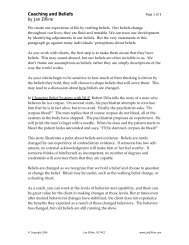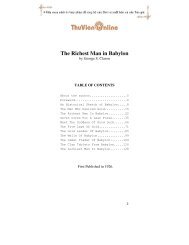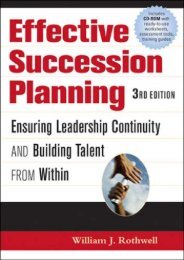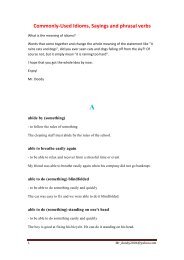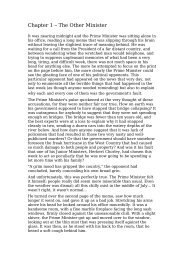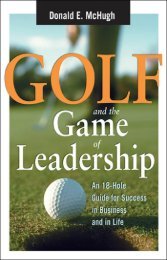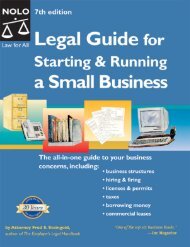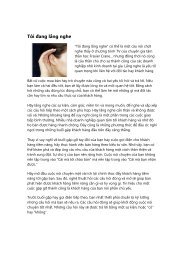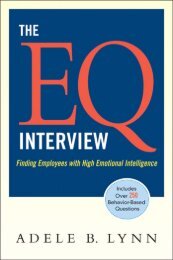1. The 15-Second Principle
1. The 15-Second Principle
1. The 15-Second Principle
Create successful ePaper yourself
Turn your PDF publications into a flip-book with our unique Google optimized e-Paper software.
Page 67<br />
my side of the road and had almost arrived on the other side of the road, when he did something weird.<br />
Just as my car was about to pass him safely, he apparently got startled and sprinted back across the 95<br />
percent of the road that he had just crossed. As I jammed on the brakes, he was able to take one last<br />
desperate leap and land back into the thick and safe vegetation.<br />
After celebrating the fact that I didn't destroy his day or mine, I began to think about how stupid the<br />
squirrel was for needlessly endangering his life. After all, before he panicked, he was just a few feet away<br />
from his destination. Why in the world would he change course so late in his journey and head back to the<br />
other side of the road, where the noise and danger was coming from?<br />
My guess was that he was attempting to cross the road in order to visit a new or less familiar section of Bel<br />
Air. When he heard my car coming, he sensed danger, abandoned his exploration, and sought refuge in the<br />
environment he felt safest and most familiar with.<br />
<strong>The</strong>n I realized that we, as humans, probably practice this behavior more often than we'd like to admit.<br />
First, we commit to a passionate and challenging project that we are curious about (writing a novel,<br />
inventing a product, looking for a new job, developing a one-person show, going for an educational degree,<br />
writing songs for our own CD). <strong>Second</strong>, we begin developing momentum and making progress with our<br />
dream project or overwhelming task. Third, before we complete, sell, or declare our creative journey a<br />
success, something interferes with and interrupts our flow, confidence, and advancement. Perhaps a<br />
knowledgeable friend or "expert" gives us a negative critique (and we believe it); an agent, publisher,<br />
manufacturer, or producer does not buy or resonate with our idea or product; we get overwhelmed by the<br />
enormity of our commitment; or we prematurely run out of steam, passion, and/or money.<br />
We then take the interruption or negative critique personally, believe it, make it extremely significant, turn<br />
the experience into an huge obstacle, and allow it to dishearten and paralyze us.<br />
<strong>The</strong> tragedy here is two fold. First, we have stopped doing something that we were passionate about and<br />
that fulfilled many of our self-expressive and creative needs. <strong>Second</strong>, there was a chance that we were


